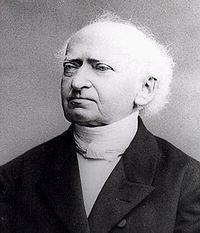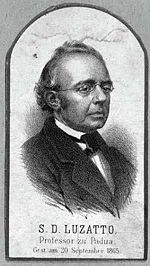(Full disclosure:my own book review of the Jewish Annotated New Testament is published at the end of this issue. I did receive a free copy of the journal.)
- Tzvi Sadan's article ("Halachic Authority in the Life of the Messianic Community"): I was glad to get to read this and glad that it's been put into print, since it articulates a number of important arguments in a succinct and eloquent way. That said, in his treatment of Matthew 16, I was a little surprised that he failed to directly address verse 12 (unless I missed it)--in which it says that Yeshua "was not telling them to guard against the yeast used in bread, but against the teaching of the Pharisees and Sadducees." I take it that Sadan reads this verse through the lens of Matt 23:1-2 and Luke 12:1, but I think it only weakens his argument for him not to state this explicitly. (And even stated clearly, I think this is the one of the weak points in his argument...and this is coming from someone who shares Sadan's convictions in this area.)
- James Pyle's article ("Origins of Supercessionism in the Church") provides a helpful overview of supersessionism in Christian history. I'm looking forward to his followup article on supersessionism today.
- Update (forgot to include this in my initial post): I enjoyed Rabbi Russ Resnik's initial article in a series he will be doing on "Living the Greatest Commandment" (the Shema) and very much look forward to further entries. I'm particularly interested in seeing what Rabbi Russ brings out get integrated into our communal understanding, practice, and articulation of the Shema, including in public worship.
- Toby Janicki's article ("A Gentile Believer's Obligation to the Torah") has been a long time coming. I've thought a number of times that the current discussion about Acts 15 is too reductionistic on the Gentile side of the equation--the "four prohibitions" of the Apostles aren't just four singular practices. Rarely does anyone actually map the prohibitions onto the teachings of Paul or the other apostles, and I've longed for an ordered exploration of this topic. Not only is Toby's article a great contribution towards that effort, but he also includes helpful forways into later Jewish and Christian interpretation on the issues. A couple observations:
- I had never heard anyone propose the interpretation Toby proposes for Paul's perplexing reference to "baptisms for the dead" in 1 Cor 15:29.
- I also appreciated his take on Paul's reference to "the cup of blessing" in 1 Cor 10:16.
- Another great scholarly take on the ritual demands of Paul's gospel to the Gentiles with respect to the Temple is Paula Frederksen's article Paula Frederiksen "Judaizing the Nations: the Ritual Demands of Paul's Gospel".
- I also am intrigued by his proposal that Gentiles are enjoined to keep the "remember" portion of the Shabbat commandment (with respect to creation) but not the "guard" portion which relates to the exodus from Egypt.
- I do wonder about some of Toby's "these would only make sense if..." arguments, where he suggests that early Messianics must have been familiar with certain practices (such as benching), otherwise Paul's statement would make no sense. Clearly, the Lord's Supper (even at it is practiced today) has its roots in mealtime blessings, but does the fact that few Christians today bench after meals prevent them from understanding Paul's reference to "the cup of blessing that we bless"? So even though I wonder about the degree of adaptation that had already happened, I'm not at all threatened by the idea or by Gentiles recontextualizing the "cup of blessing" to reclaim .
- Aaron Eby's article ("The Writing on the Wall") is the second in a series on the destruction of the Temple; this time he surveys rabbinic responses to the Temple's descruction. This series has been helpful for me in relation to discussions I've been having about the NT's theological evaluation of the Temple.
- The Levertoff excerpts are really great. Keep 'em coming, FFOZ!
- The book reviews section includes two great book reviews from Jacob Fronczak (Scot McKnight's The King Jesus Gospel and David Rudolph's A Jew to the Jews). The latter is rather expensive ($88.15 on Amazon.com), so Fronczak's review gives readers with a more limited budget an idea of what Rudolph covers in exquisite detail. Also, Jacob's voice is relatively new to me (I discovered his blog, Hope Abbey, last summer), but I immediately welcomed his insightful contributions to the Messianic conversation.
- Last and least, my first contribution to Messiah Journal, a review of the Jewish Annotated New Testament. I'll leave it to others to comment. :-)






